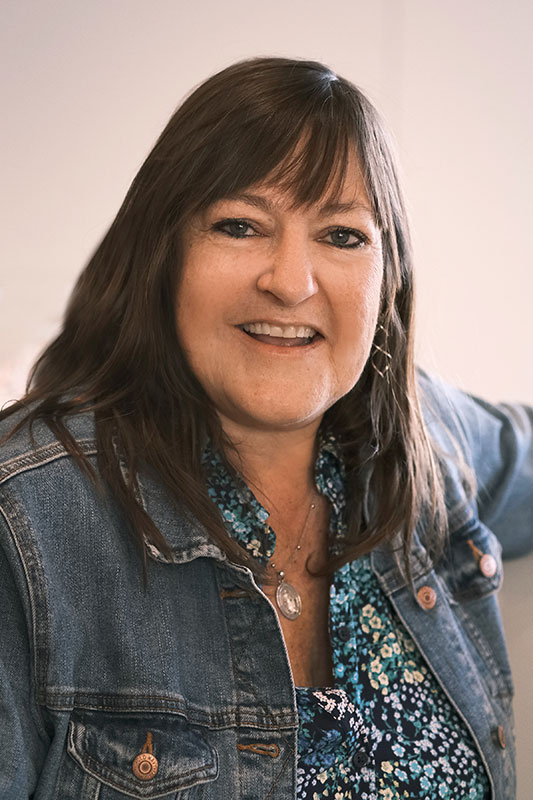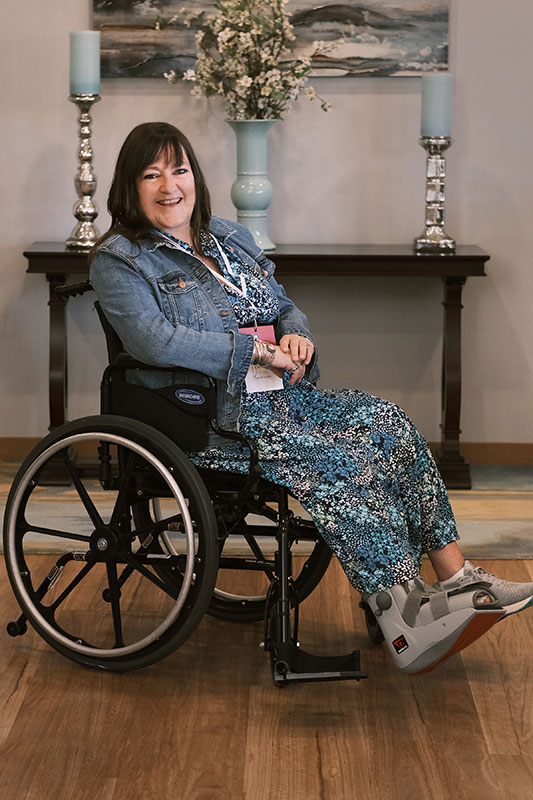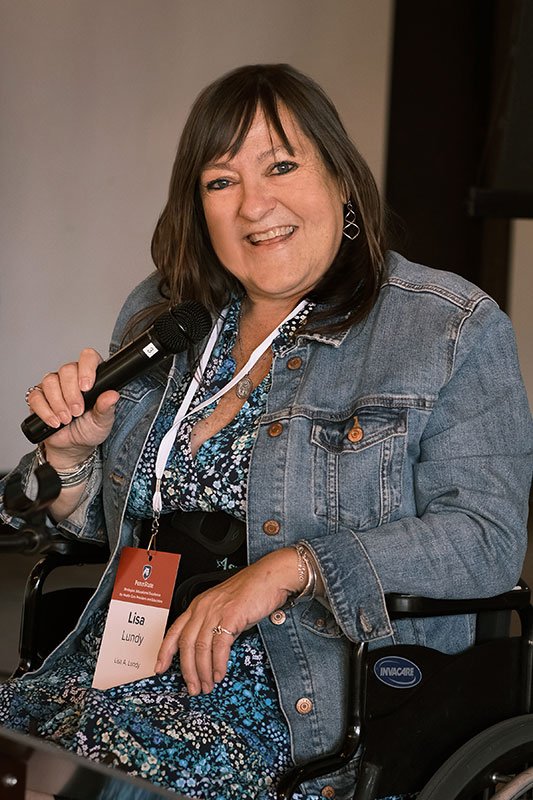We discuss today with Lisa Lundy. Lisa is a mental health and wellness expert, and a member of the NEWSWEEK Expert Forum. We spoke to Lisa after her nearly fatal car accident, and she is doing incredibly well largely due to her emotional intelligence and emotional processing skills. Photos taken 2 months after the accident where she was a featured speaker.
Why is this the ONE article that could change or save a life, Lisa? Help our readers understand that very bold statement if you would.
Yes, I understand that this is a bold statement, so I’m happy to explain that. What is missing in the area of mental health and wellness is the directions on how to manage and process your emotions inside of your mind – in your head, which is now available to your readers and the public in a FREE downloadable document available at www.LisaALundy.com below the Newsweek Logo. Why this is significant is because the contents in the emotional processing workbook is at the crux of preventing suicides, addictions, depression and anxiety, health issues, domestic abuse and violence, dysfunctional families and parenting, divorces and relationship issues. Unfortunately, we are not teaching emotional processing and emotional management in society and it goes well beyond that.
If you do an internet search on how to manage and process your emotions you will find on the top ranked websites suggestions like: punch a pillow, rip up a piece of paper, draw a picture, talk to a friend, etc. While these are in no way bad suggestions, they fall completely short of the mark of what happens in your mind to manage and process your emotions. The information in my FREE downloadable workbook (Version 5.0) will predictably change how your readers manage and process their emotions and, in some instances, it could be lifesaving. Is it bold? I guess for a layperson, it is bold. That is kind of what we innovative thinkers and thought leaders do – we take bold steps. We say what needs to be said.

Why is this information not already available for people. That seems a bit far-fetched. Can you provide some explanation on that?
Yes! First of all, I agree with you and I have spent the past year or so trying to figure out why this information is not all over the internet and widely known and understood. I’m giving you my hypothesis on this because the reality is that I’m not completely sure. Here’s the top reasons in my hypothesis:
1- We have a lack of consensus in medicine although consensus has been growing in medicine in the past 10 to 15 years. Likewise, there seems to be a lack of consensus in psychology and perhaps by the very nature of the differences between schools of thought or beliefs in psychology, that may act as a barrier for consensus.
2- There is statistically speaking a low percentage of rational thinkers in the world, which would be a requirement for putting forth a valid model for emotional processing. Irrational thinking, as common as it is, would not provide a valid model.
3- Worldwide, low self-esteem stands at impacting 85% of the population. Low self-esteem provides a warped or skewed or distorted view, perceptions, conclusions and judgments of life and would not provide a valid model for emotional processing meaning there are few people who have healthy self-esteem who could create the model.
4- There are so many factors that should be considered in emotional processing, which are not common knowledge like psychoneuroimmunology, trauma-bonding, being the safe person, etc. which further limits the pool of individuals who could create the model.
5- We have some individuals or organizations putting forth questionable or false models and then selling them, trademark or licensing them and no one is the wiser. There is no governing organization saying this is bad information, so it is allowed to perpetuate.
I suspect there are additional reasons why a rock-solid model for emotional processing and management has not come into the public view, but these I feel confident about being a barrier to the creation of a complete and thorough model.
According to the research as of July 2019, we do not have a consensus definition of what constitutes good mental health in the World. We have eight conflicting definitions of what makes up good mental health, which is deeply troubling and problematic. We have consensus on what constitutes mental illness or mental health disorders, yet no consensus on good mental health. This would be one significant reason why we don’t have a model for emotional processing and management.

Please tell us about the Free Emotional Processing Workbook. Why is it Free (don’t you want to make money)? And how did you come up with it?
The Free Emotional Processing Workbook is designed to walk people through the myriad of aspects that come into play when you are dealing with an emotional situation – good or bad. Although I will say for the most part, not too many people need help in dealing with their happy and positive emotions. Most people get trapped or stuck with the difficult emotions – anger, betrayal, hurts, wounds, resentment, sadness, loss, etc. The workbook is straightforward and easy to use. It is not complicated. There are however several aspects to emotional processing that will very likely be new to your readers.
If your readers print out the workbook and start using my emotional processing workbook, and keep using it, what will happen is that their brains will pick up the process and ultimately, they will not need the workbook. The workbook does include some very basic psychology terms and concepts, which should be used or considered when managing and processing your emotions. It is free because it is too critical for humanity to be saved for only those who can afford to pay for it. This is one issue I take with some aspects of psychology. We have not made some critical aspects, information, or discoveries accessible to the public and therefore some “discoveries” or fields with rich information are not helping society like they could be. Of course, I want to make money. My commitment to reduce the suicide rate, to start reducing addiction rates, to help decrease depression and anxiety rates, to change the way society operates to be a more loving, kind and compassionate world is my passion and calling. In my experience, the money always takes care of itself if you know what I mean.
The workbook is the byproduct of me deconstructing how I manage and process my emotions after learning in 2022 that I was extraordinarily good at managing and processing my emotions. As a layperson, I had no idea that this was a super skill set. I didn’t even think of it as a skill because it was an unconscious and automatic process for me. Having had my psyche under the microscope for the past year plus in the creation of the emotional processing workbook, what I have learned is that I was given the right experiences, the right people, the right environments to build the skills starting at a young age, which included the right leadership experiences to learn about people and human behavior.
I see that while it is a FREE document, your emotional processing workbook has limitations on it. Can you explain why you have those limitations?
That is an excellent question. I have made those limitations for use due to several reasons. Here are a few:
1- This content is original and needs to be protected from not only theft or misuse, but nefarious use and changes. It is valuable in the original form, yet doctored it could be harmful. Protecting society is the first reason for the limitations to use.
2- This workbook is a work in progress, meaning it is still being changed. A second and very important reasons for the limitations is that each of the changes in the versions has been significant. With over 1.7 billion websites in the world as of this year, it would be impossible to keep all of the websites updated when a new version is released. Therefore, the only reasonable solution is that websites can link to the original source. That is clean and fair. It is critical that consumers get the latest and most current version of the workbook. This limitation accomplishes that end goal.
3- These limitations should safeguard the fact that no one person in the world is shut out from this information because they lack the financial resources and these limitations protect that as well. This is a free-will offering to the world and the limitations protect it from unscrupulous individuals and organizations who, in a heartbeat would change one or two items and then pass it off as their own work, a situation that happens frequently.
4- It is intellectual property. That is what you do with original intellectual property. You protect it.

Is there anything else new with you since our last interview?
Yes. I am happy to report that I survived a nearly fatal car accident on Labor Day of 2023, without being brain damaged, without paralysis, and without losing a limb. I broke my first bone ever and in fact, I broke lots of bones. My high emotional processing skills stood out to the hospital staff and then the rehabilitation center staff as I weathered the trauma of the accident by managing and processing my emotions, which was something that we discussed. I allowed myself to cry for 5-10 minutes a day for the first 5 weeks or so, crying twice a day on a few days as I worked through the process of dealing with my emotions. There was the shock of it, which lingers, as well as the loss, the upset, etc. as well as the good emotions of how I was saved from death and other horrible outcomes. I even made it to a conference to deliver a speech in early November, which I had to do from a wheelchair since I’m not walking yet (but will be soon). I even managed to turn out a number of new podcasts while I was in rehab.
Is there anything else you would like to say to our readers?
Yes! If you are a layperson like me, you might not know or understand the significance of emotional processing and management, which would be reasonable and normal. Your health and wellbeing depends on your emotional regulation and your ability to manage and process your emotions even if you do not know that. I would implore you to download my Free Emotional Processing Workbook and learn the steps especially if you want to avoid serious problems in life. I promise you that it will help lead you to a happier life with higher wellbeing.
To know more about Lisa Lundy, please visit www.LisaALundy.com











